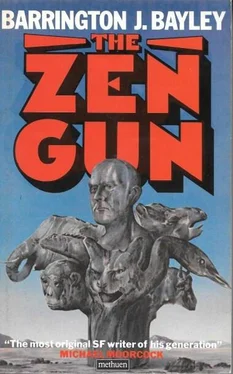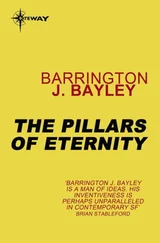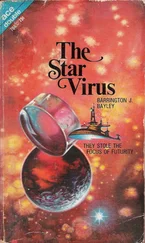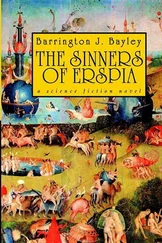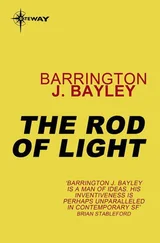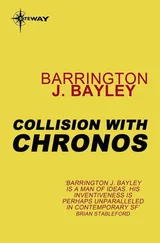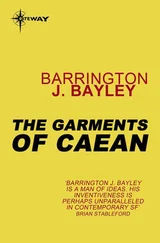“If the boy kills himself your life will be immediately forfeit.”
“The equation does not balance. The outcome will be as I have stated.”
Nascimento sipped long and thoughtfully from his glass, staring over the rim at the two. The expression on his face showed that he was accepting what the kosho had told him.
He sighed, sadly, then placed the glass on the table.
“I see,” he said slowly, his voice suddenly weak. “Well, can’t afford to have such a dangerous enemy abroad. Regrettably, I shall have to destroy you both.”
With his free hand he made a gesture—or rather he began to make it. At the same moment the kosho , anticipating that he was about to order the pulse blast to fire, sprang.
Whether his leap would have succeeded was doubtful. In the event, it was redundant. Behind the transparent screen Pout was crouched, listening with increasing excitement. He could contain himself no longer. He fired through the screen, unheedful that perhaps it would impede the action of the gun.
It did not. And neither was Pout’s aim any better than in the weapons house. The pink stitching, more sparkling and thrilling than had been noticeable in the fusty exhibition hall, sprang into being, transfixing the screen, curving through the air, ending at the small of Nascimento’s back. The curator crumpled without a sound, his murderous gesture never completed.
As Pout crept from behind the screen, a refrain sounded in his mind:
I can maim and I can kill
With my zen gun .
The phrases lingered with him as he approached the body and leaned over it. Finally he poked it to make sure it was dead.
Oh joy! He had killed Nascimento!
He rounded on those whose lives he had saved. He would have held his fire to let Nascimento destroy them first, if only for the pleasure of seeing how it happened, but the ramshackle education he had received from the robots told him something about this man, something that left him feeling stunned by his good fortune. In a hoarse voice, he spoke.
“You are a kosho . A perfect warrior.”
Nothing that had happened seemed to have perturbed the kosho in the slightest degree. He was gazing at the gun in Pout’s grasp. “What is that weapon?” he asked, holding out his hand. “Let me see it.”
“No! It’s mine!” cried Pout, clutching the gun to his chest, and the man let his hand fall.
“Mixed one, you have destroyed a demented mind. Your motive, however, is as yet unknown to me.”
“You are a kosho ,” Pout repeated. “And I have saved your life! Yours, and the boy’s. I know your code. You are in my debt .”
Anxiously he waited to hear how the kosho would respond to his invocation. The man paused, then nodded slowly.
“Yes, that is so. You are entitled to name what the repayment shall be. If your demand is disproportionately great, however, there is another way I can discharge the debt, namely by taking my own life.”
“All I want is for you to follow me and be my protector,” Pout said. “Fight for me. Do what I say.”
“You are a chimera, are you not?” the kosho remarked thoughtfully. “Part man, part animal. Which part predominates, I wonder?” Pout grimaced, hugging the gun closer to him, and the kosho went on: “And you think you have it in your power to make a slave of a pure man. For a citizen of the second class to own a citizen of the first class. Very well, I shall repay my debt, mixed one. I shall preserve your life if the need arises. But you must understand that my duty to you ends there. I shall not attack others at your command unless in a just cause. If you demand my services beyond this limit, I shall rid myself of my obligation by ending my life, as the code dictates.”
Of this Pout did not understand too much, but his eyes glittered. “Where are your guns and everything?” he rasped.
“Nearby. But since we shall need to address one another, how are you named?”
“Named?” Pout blinked. His view of himself scarcely included a name. But he remembered what he had been called. “Pout,” he mumbled.
“I, Hako Ikematsu, you may address as kosho . This, my nephew, is Sinbiane.”
The kosho beckoned, and stepped through a second door on the other side of the room, followed by his boy companion. Pout also followed. Down a corridor was a vestibule; beyond that, a main entrance; then a path leading to a small lodge.
Pout was exhilarated when he saw the number and variety of the kosho ’s weapons. He watched greedily while the warrior hung them about himself, fastening them to his harness without ever asking for the assistance of the boy. Then the warrior looked questioningly at him.
He scanned the savannah again. The sun would soon be down, but the ferocity of his feeling would brook no delay. No sense spending one more minute in this place, his prison. The world lay open before him!
Wait! What of the man who had set him free? He might still be in the museum somewhere. Perhaps Pout should…
“Do we leave?” asked the kosho .
“Yes. Yes!”
“Then you must walk ahead. We will follow at a distance.”
This condition disconcerted Pout. On his part it would be the clumsy precursor of treachery… but limited though his ideas of the world were, he did know that koshos were honourable.
The party set off across the grassland, lit by the red of the dying sun.
The cat woman positively purred with pleasure. Archier rolled off the low couch where they had disported, and stretched luxuriously.
A warm breeze rippled across his body. He strolled down the mossy bank and stepped into the chuckling stream at the bottom, bending to splash cool water on his skin. A rainbow fish darted between his legs, evading his half-hearted attempt to catch it.
The cat girl leaped in beside him. Her sense of enjoyment, he had noticed, was more deep-seated than his own. With a low laugh she flung herself full-length in the water and rolled about until even her shiny black hair was wet. Then she climbed out and lay on the moss to dry, limbs asplay.
He remembered the responsiveness litheness of her musculature, the way she had clawed at him during their lovemaking. Her eyes were golden and caught the light brilliantly. When the pupils contracted it was to slits rather than points.
“You know,” he said, stepping from the brook to stand over her, “it’s hard to believe you’re no more than ten per cent cat.”
Again she gave her mocking, deep throated laugh. “Actually, I’m closer to twenty per cent.”
“Really?” Archier was perplexed. “But you’re a first-class citizen, aren’t you?”
The girl seemed amused. “You think every first-class citizen walking around is a ninety percenter? It’s mostly animals and chimeras that run the tests, and they bend the rules. My examiner must have been forty per cent ape but he was planning to rig first class for himself.”
Bemused, Archier shook his head. “Did he make it?”
“I don’t know. But it’s easy to get round the genetic laws these days. Nobody cares.”
“What you mean is the administration is sloppy to the point of farce,” Archier murmured.
Lazily, she blinked, and Archier noticed a sudden change in the quality of the light falling from the apparent sky. He glanced up. Beside the pink sun hovering over the horizon a red light was winking, like a pulsating companion. It was a signal to tell him duty called.
He bent down and patted the girl’s damp hair. “I must be going. I’m wanted.”
Pushing through a hanging screen of weeping willow, he was suddenly in a crescent-shaped room whose concave wall was a continuous curve with a ceiling, decorated with a floral pattern among which were interspersed oval vision plates. It was his office, containing desks, a mental refresher set alongside the dispenser of flavoured cold drinks, and various apparatuses relating to his position as fleet commander.
Читать дальше
